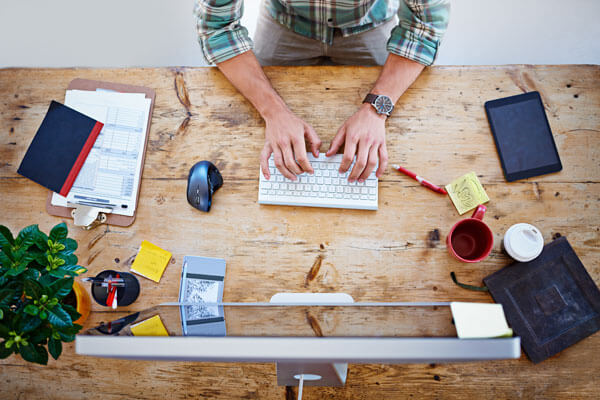
It’s frustrating to visit a website for an answer to a question or a solution to a problem and find minimally-informative content. In situations like this, how often do you go back to the search to find a better-quality site?
According to new statistics from 2022, it can take a potential customer less than a second to decide whether your site is worth spending time on or not. First impressions almost always have to do with the visuals–is your site attractive, eye-catching, and modern? If it is designed well and keeps the user on your site, the next critical factor that determines whether they will stay is your content.
A website’s quality of information can boost or deflate your online presence. Small- to mid-size businesses like law firms, non-profits, medical practices, retail companies, and service industries greatly benefit from informational websites that provide detailed overviews of their products and services. It’s critical to provide a well-designed, informative website that attracts users and maintains their attention.
Here are four desirable qualities of an informational website:
#1: An Informational Website Showcases Up-To-Date Information
It might be an obvious statement, but informational websites must promote information. Whether it’s through complete product details on your online store or encompassing content on all your services pages, your information will draw target audiences in and keep them interested enough to remain on your site. Ideally, those in your target market would ultimately make a call to action based on the information you present.
An informational site is also a perfect platform to share other facets of your company or organization. People aren’t always looking for the answer to a current problem you can solve. Sometimes they want to learn more about:
- Company history
- Years of experience
- Location info
- Upcoming events
- Current promotions
By creating a robust, informational website, you will positively serve both potential target customers and current ones.
#2: An Informational Website Improves Your SEO
Search engines reward websites that have well-written, relevant, and current content by ranking them higher in search results. A website that incorporates search engine optimization (SEO) best practices into its informational content will perform better on the search engines and increase the likelihood of more traffic.
Relevant Keywords
Relevant keywords are one of the leading aspects of SEO. Your business or organization offers specific products or services, and your target audience is looking to find the solutions you provide. Show up in front of these users by researching the keywords and keyword phrases they use in their searches and working them into your informational website.
Your primary and secondary web pages should feature the right keywords throughout each page’s content. You can also produce blog articles on a consistent basis to expand your keyword usage and highlight industry news. Regularly providing fresh blog content gives your customers more opportunities to find you in their searches. They will also have more reasons to return to your website. Blogs can even establish you as an industry leader.
#3: An Informational Website Is Responsive (Mobile User Friendly)
There are two types of website designs: responsive and adaptive. Adaptive sites require developers to create multiple layouts to fit desktops, laptops, tablets, mobile devices, and more. Responsive sites employ a single layout that responds to the format of whatever device someone is using.
Through responsive web design, you automatically offer a mobile-friendly site. Those on mobile phones can encounter a mobile-friendly version of the same website that someone on a laptop or desktop would find. Responsive sites are the most common option among web design companies as they offer fluidity, better formatting, and easier maintenance capabilities. Plus, search engines like Google push responsive websites over adaptive ones. Almost all new websites feature a responsive design.
By creating an informational, responsive website, you are sure to improve your online presence and increase traffic to your site.
#4: An Informational Website Is Completely Customizable
Your informational website should include features that make it completely customized to your company. Visitors want to see originality in your:
- Images
- Videos
- Portfolios of your work
- Photo galleries
- Product images
It’s important to include anything that personalizes your website and keeps your visitors engaged.
Your custom website should also feature completely original content for your business or organization.
M&R’s Web Design Portfolio
M&R Marketing specializes in dynamic, engaging informational websites for clients ranging from brewers and builders to markets and municipalities. See some examples of our web designs.
Website Design Services from M&R Marketing Group
Building a custom, responsive, informational website requires experience and expertise. Luckily our in-house team of copywriters, graphic designers, and web developers provides comprehensive web design services. We’d love to talk to you about creating an informational website for your company or organization: 478-621-9941
Never Miss An Article – Sign Up for Our Monthly eNewsletter!
Ready to Learn More About Launching a Great Website?



